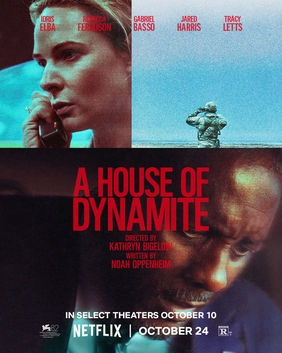Hud - This Plot Is Not Big Enough For The Two Of Us
- Ivo Raza
- Nov 6, 2023
- 3 min read

Hud. A neo-western (if there’s neo-noir, why not neo-western?), which seems plotless and is centered around the titular character, who drinks and womanizes with abandon to the awe of his 17-year-old nephew (Lonnie), the irk of his father (Homer), and the smirk of the wise housekeeper (Alma). The story provides a slice of life on a dusty farm in the Texas panhandle, the fifth character. Life there is laborious and tedious, so what is one to do but drink, fornicate, and get into brawls? Not much, it seems. But that is not the main question.
The film raises a few, and that is what we follow…thus calling it plotless is not accurate. Hud reveals a significant want ($$$), and first tries to convince Homer to sell some land for oil. When he refuses, Hud attempts to have the old man declared incompetent. Later, he doesn’t mind getting the moolah by selling some sick cattle. Yet that’s another major no-no for Homer, who obliges the state by killing the entire herd. It’s a heartbreaking moment…and not because Paul Newman doesn’t get his dough.
And even though Hud wants dollars, and the conflict between father and son is there from the start (it’s generational ya’ll) the main question this film raises…who will win the influence over the boy Lonnie? Hud and his cool, drinking, selfish ‘tude? Or wise old dad and his old-fashioned values? It’s a gut game of tug.
On a grander scale, it is the clash of generations, the demise of the community as we know it, and the rise of the materialistic, I'm-gonna-get-mine individuality. The times they are a changing and all that. And according to Pops, not for the better. He simply can not reconcile that a creature like Hud is a product of his loins.
In the process, we find out that Hud is the reason for the demise of his brother (father to said nephew), and we are led to believe that that is the reason for the old man’s wrath. But not so. The old man is disdainful because of…you guessed it…Hud’s selfishness. Homer, “You don't care about people Hud. You don't give a damn about 'em. Oh, you got all that charm goin' for ya. And it makes the youngsters want to be like ya. That's the shame of it because you don't value anything. You don't respect nothing. You keep no check on your appetites at all. You live just for yourself. And that makes you not fit to live with.”
Speaking of loins, there’s a pinnacle of conflict during which Hud (drunk, of course) attempts to rape the housekeeper only to be stopped by the kid. The housekeeper promptly leaves…she too, is part of a newer generation, one that won’t take shit and sexual assault from assholes. In a twist of irony and potentially the best FU to Hud, before departing, she tells him that if he’d been patient, it would have happened naturally.
"You don't look out for yourself, the only helping hand you'll ever get is when they lower the box," says Hud, and after his father’s passing and the departure of Alma and Lonnie, he remains alone to fulfill his self-proclaimed prophecy. Perhaps he can finally sell some of that land for oil?
Some may call Hud a character study, others a revisionist Western; I think it’s a story built around questions that doesn’t follow the typical hero-with-a-goal and character-arc-growth formulae. The questions it poses maintain tension throughout the story and raise all kinds of trackable storylines. We have seen plenty of classic westerns with the usual black-and-white plotting…Hud’s lack of a traditional plot is its strength.
Directed by Martin Ritt
Screenplay by Irving Ravetch & Harriet Frank Jr.
Based on Horseman, Pass By 1961 novel by Larry McMurtry



